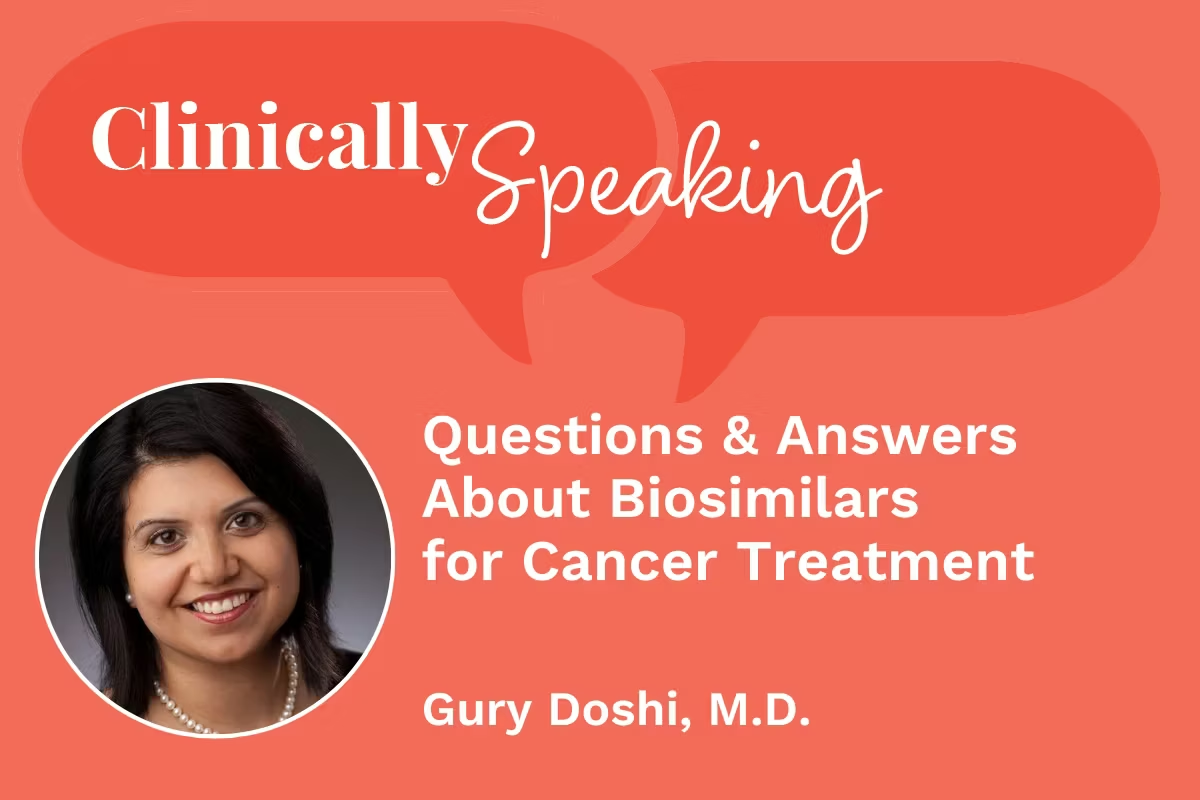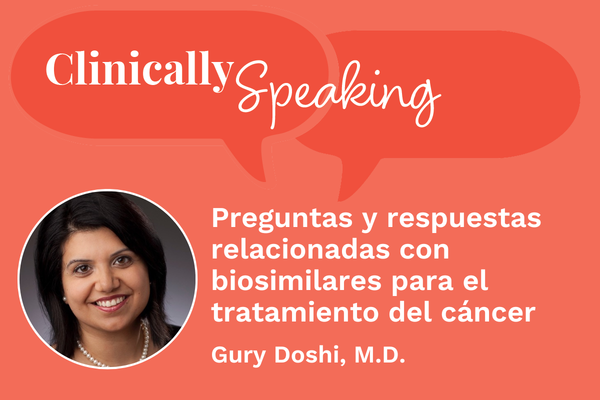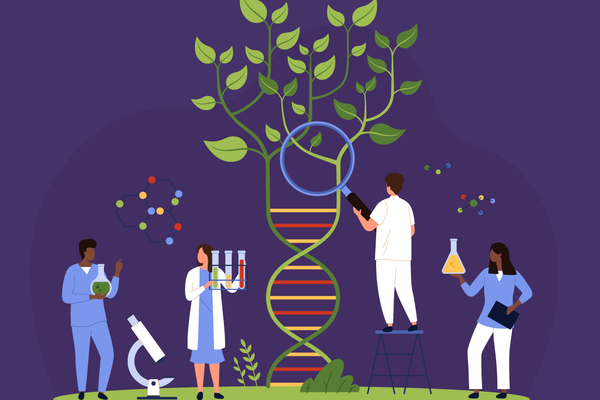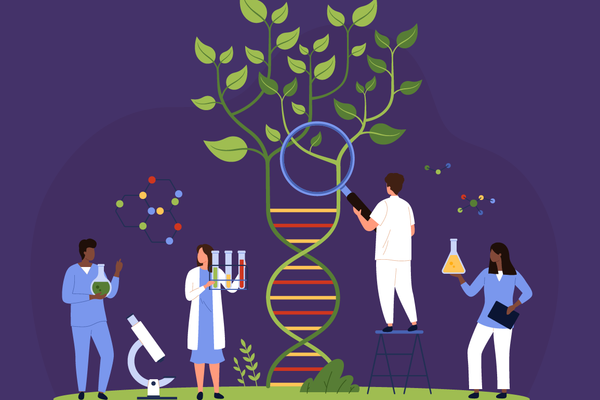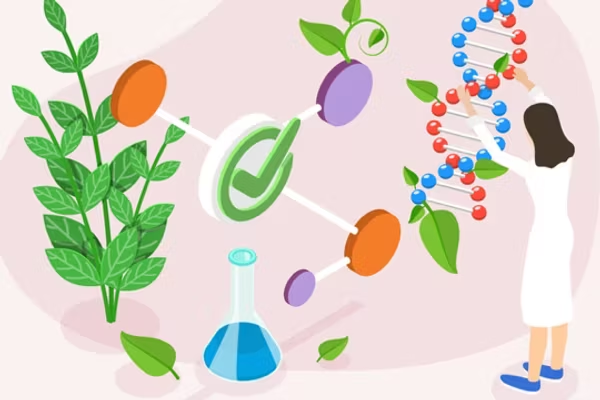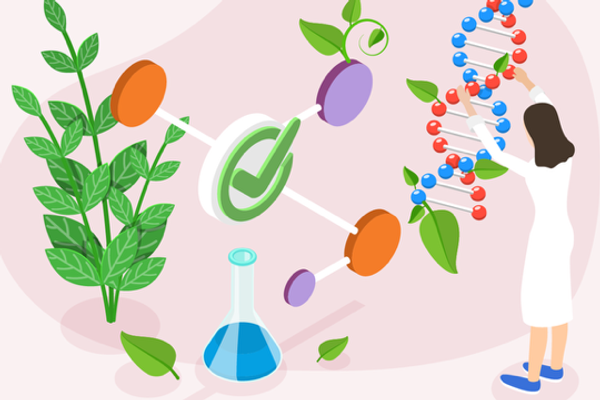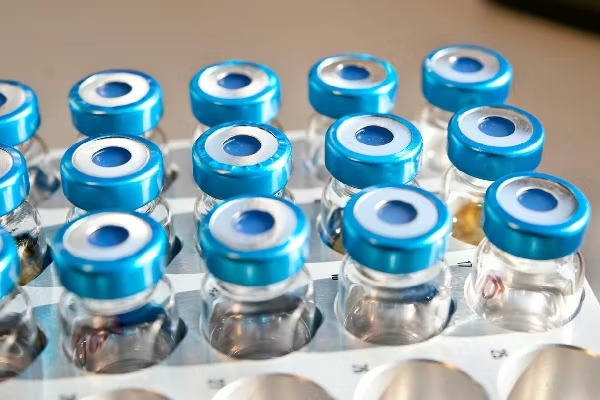A biosimilar is a medicine that is similar to an existing, brand name biologic medicine (a medicine made from living cells and organisms). Although biosimilars are not identical copies of biologics, they’re very close and work in the same way.
Like biologics, biosimilars have many different uses, including treating certain types of cancer.
We spoke with Gury Doshi, M.D., medical director at Texas Oncology-Houston West and chair of The US Oncology Network Pharmacy and Therapeutics committee, to learn more about these promising treatments.
How is a biosimilar different from a biologic vs. a generic medication?
Biologics are medicines that are made up of living cells or organisms. That's why they’re called biologics — bio meaning living cells. Some examples of biologics are gene therapies, stem cell therapies, monoclonal antibodies and recombinant proteins.
These medicines are used to treat chronic conditions, including autoimmune disorders like rheumatoid arthritis, lupus and Crohn's disease, as well as some cancers.
A generic medication is an exact chemical copy of a medicine, with identical active ingredients. It’s not possible to make an exact copy of a biologic since they’re made from a living source, so biosimilars are as close as you can get. There are slight differences between the two, but not enough to affect their structure or function.
Are biosimilars safe and effective?
Yes, absolutely. The FDA won’t allow a biosimilar on the market unless they see data showing safety and effectiveness. After the medicine has been approved, they continue to keep an eye on it to make sure it’s safe and works the way it should.
Is the FDA approval process different for a biosimilar?
The approval process for a biosimilar is an abbreviated process. When the FDA is deciding whether to approve a biosimilar, they don’t look at how chemically close the medicine is to the biologic it’s modeled after. They only look at whether the biosimilar is safe and effective.
Are there advantages to biosimilars?
The fact that biologics are made from living cells and organisms is what makes them special, but it also makes them a little more expensive to develop. Since biosimilars are based on a biologic as opposed to being invented from scratch, they don’t cost as much to make. This savings often gets passed on to patients.
Having a cheaper but just as effective alternative to biologics means we can offer these treatments to more patients and get them started sooner — which may ultimately lead to better outcomes.
Read: Understanding Biosimilars: Better Access to Advanced Medicines >>
Is there any difficulty with insurance coverage for biosimilars?
No. Insurance companies now understand the role of biosimilars, and they get that everybody (including insurers) benefits from having more treatment options. In my experience, they're very comfortable with covering biosimilars, but which biosimilars are covered will vary according to a person’s insurance plan.
How do biosimilars work for cancer?
Biosimilars have ushered in an era of expanded possibilities for cancer treatment. The type of biosimilar now used the most for cancer treatment is monoclonal antibodies. These medicines work by binding to a certain protein on a cancer cell, helping to block signals for cancer growth.
One is called bevacizumab, and it’s used to treat metastatic colon cancer, lung cancer and kidney cancer. Others we use are trastuzumab to treat HER2-positive breast cancer, and rituximab to treat non-Hodgkin’s lymphoma.
We also use biosimilars to provide supportive care to patients with cancer. One called epoetin helps with anemia caused by chemotherapy, and another called filgrastim is used for neutropenia (low white blood cell counts).
What questions should I ask my cancer care team about biosimilars?
Questions you could ask are:
- What is the biologic medicine that this biosimilar is based on?
- Is there any difference in the dosing or how often it’s given?
- Are there any side effects that are unique to this biosimilar?
- Is this biosimilar given in the same way as the biologic (through an IV or by injection)?
It’s our job as providers to make sure our patients know they have choices in their treatment and to have all the information they need about these choices.
Is there anything else you’d like people to know about biosimilars for cancer?
Biosimilars have opened up cancer treatment opportunities for patients not just in the United States, but throughout the world. They’ve really been the unsung heroes of modern cancer treatment.
This educational resource was created with support from Sandoz.
- Questions to Ask Your Healthcare Provider About Biosimilars ›
- How Biosimilars Help with Chronic Conditions ›
- How Are Biosimilars Made? ›
- Biosimilars Basics ›
- Biosimilars, Explained ›

